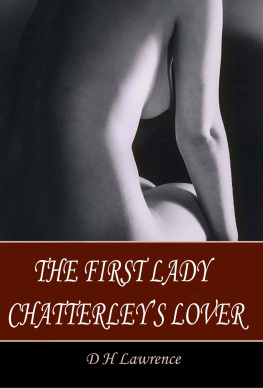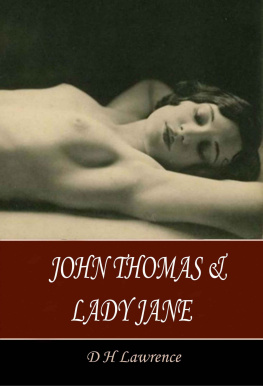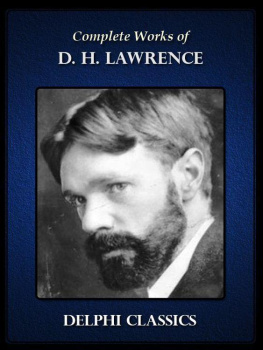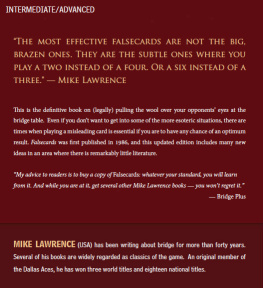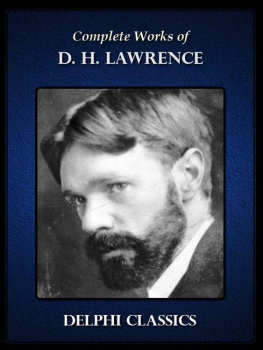DH Lawrence - A Collier's Friday Night
A PLAY IN THREE ACTS
For many of us DH Lawrence was a schoolboy hero. Who can forget sniggering in class at the mention of Women In Love or Lady Chatterleys Lover? Lawrence was a talented if nomadic writer whose novels were passionately received, suppressed at times and generally at odds with Establishment values. This of course did not deter him.
At his death in 1930 at the young age of 44 he was more often thought of as a pornographer but in the ensuing years he has come to be more rightly regarded as one of the most imaginative writers these shores have produced.
As well as his novels he was also a masterful poet (he wrote over 800 of them), a travel writer as well as an author of many classic short stories.
Here we publish A Colliers Friday Night. Once again Lawrence shows his hand as a brilliant writer. Delving into situations and peeling them back to reveal the inner heart.
Index Of Contents
Characters
Time
Act I
Act II
Act III
DH Lawrence A Short Biography
DH Lawrence A Concise Bibliography
CHARACTERS
MRS LAMBERT
LAMBERT
NELLIE LAMBERT
ERNEST LAMBER
MAGGIE PEARSON
GERTIE COOMBER
BEATRICE WYLD
BARKER
CARLIN
TIME
The action of the play takes place in the kitchen of the Lamberts' house.
ACT I
The kitchen or living-room of a working-man's house. At the back the fireplace, with a large fire burning. On the left, on the oven side of the stove, a WOMAN of some fifty-five years sits in a wooden rocking-chair, reading. Behind her and above her, in the recess made by the fireplace, four shelves of books, the shelf- covers being of green serge, with woollen ball fringe, and the books being ill-assorted school books, with an edition of Lessing, florid in green and gilt, but tarnished. On the left, a window looking on a garden where the rain is dripping through the first twilight. Under the window, a sofa, the bed covered with red chintz. By the side of the window, on the wall near the ceiling, a quiver clothes-horse is outspread with the cotton articles which have been ironed, hanging to air. Under the outspread clothes is the door which communicates with the scullery and with the yard. On the right side of the fireplace, in the recess equivalent to that where the bookshelves stand, a long narrow window, and below it, a low, brown, fixed cupboard, whose top forms a little sideboard, on which stand a large black enamel box of oil-colours, and a similar japanned box of water-colours, with Reeve's silver trade-mark. There is also on the cupboard top a tall glass jar containing ragged pink chrysanthemums. On the right is a bookcase upon a chest of drawers. This piece of furniture is of stained polished wood in imitation of mahogany. The upper case is full of books, seen through the two flimsy glass doors: a large set of the World's Famous Literature in dark green at the top, then on the next shelf prize-books in calf and gold, and imitation soft leather poetry-books, and a Nuttall's dictionary and Cassell's French, German and Latin dictionaries. On each side of the bookcase are prints from water-colours, large, pleasing and well framed in oak. Between the little brown cupboard and the bookcase, an arm-chair, small, round, with many little staves; a comfortable chair such as is seen in many working-class kitchens; it has a red chintz cushion. There is another Windsor chair on the other side of the bookcase. Over the mantelpiece, which is high, with brass candlesticks and two "Coronation" tumblers in enamel, hangs a picture of Venice, from one of Stead's Christmas Numbers, nevertheless, satisfactory enough.
The WOMAN in the rocking-chair is dressed in black, and wears a black sateen apron. She wears spectacles, and is reading The New Age. Now and again she looks over her paper at a piece of bread which stands on a hanging bar before the fire, propped up by a fork, toasting. There is a little pile of toast on a plate on the boiler hob beside a large saucepan; the kettle and a brown teapot are occupying the oven-top near the WOMAN. The table is laid for tea, with four large breakfast-cups in dark-blue willow-pattern, and plates similar. It is an oval mahogany table, large enough to seat eight comfortably. The WOMAN sees the piece of bread smoking, and takes it from the fire. She butters it and places it on the plate on the hob, after which she looks out of the window, then, taking her paper, sits down again in her place.
SOMEONE passes the long narrow window, only the head being seen, then quite close to the large window on the left. There is a noise as the outer door opens and is shut, then the kitchen door opens, and a GIRL enters. She is tall and thin, and wears a long grey coat and a large blue hat, quite plain. After glancing at the table, she crosses the room, drops her two exercise-books on the wooden chair by the bookcase, saying:
NELLIE LAMBERT: Oh! I am weary.
MOTHER: You are late.
NELLIE: I know I am. It's Agatha Karton, she is a great gaby. There's always something wrong with her register, and old Tommy gets in such a fever, the great kid.
She takes off her hat, and going to the door on right, stands in the doorway, hanging it up with her coat on the pegs in the passage, just by the doorway.
And I'm sure the youngsters have been regular little demons; I could have killed them.
MOTHER: I've no doubt they felt the same towards you, poor little wretches.
NELLIE (with a short laugh): I'll bet they did, for I spanked one or two of 'em well.
MOTHER: Trust you, trust you! You'll be getting the mothers if you're not careful.
NELLIE (contemptuously): I had one old cat this afternoon. But I told her straight. I said: "If your Johnny, or Sammy, or whatever he is, is a nuisance, he'll be smacked, and there's an end of it." She was mad, but I told her straight; I didn't care. She can go to Tommy if she likes: I know he'll fuss her round, but I'll tell HIM too. Pah! he fusses the creatures up! I WOULD!
She comes towards the table, pushing up her hair with her fingers. It is heavy and brown, and has been flattened by her hat. She glances at herself in the little square mirror which hangs from a nail under the right end of the mantelpiece, a mere unconscious glance which betrays no feeling, and is just enough to make her negligently touch her hair again. She turns a trifle fretfully to the table.
NELLIE: Is there only potted meat? You know I can't bear it.
MOTHER (conciliatorily): Why, I thought you'd like it, a raw day like this, and with toast.
NELLIE: You know I don't. Why didn't you get some fruit? a little tin of apricots
MOTHER: I thought you'd be sick of apricots, I know Ernest is.
NELLIE: Well, I'm not, you know I'm not. Pappy potted meat!
She sits down on the sofa wearily. Her MOTHER pours out two cups of tea, and replaces the pot on the hob.
MOTHER: Won't you have some, then?
NELLIE (petulantly): No, I don't want it.
The MOTHER stands irresolute a moment, then she goes out. NELLIE reaches over to the bookshelves and takes a copy of The Scarlet Pimpernel, which she opens on the table, and reads, sipping her tea but not eating. In a moment or two she glances up, as the MOTHER passes the window and enters the scullery. There is the sound of the opening of a tin.
NELLIE: Have you fetched some? Oh, you are a sweetling!
The MOTHER enters, with a little glass dish of small tinned apricots. They begin tea.
MOTHER: Polly Goddard says her young man got hurt in the pit this morning.
NELLIE: Oh, is it much? (She looks up from her book.)
MOTHER: One of his feet crushed. Poor Polly's very sad. What made her tell me was Ben Goddard going by. I didn't know he was at work again, but he was just coming home, and I asked her about him, and then she went on to tell me of her young man. They're all coming home from Selson, so I expect your Father won't be long.
Next page

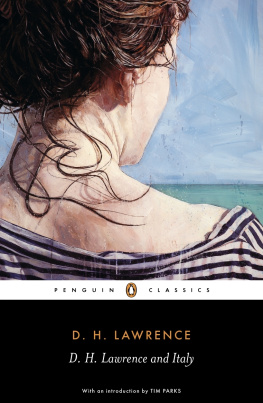
![Lawrence Durrell [Lawrence Durrell] - Caesar’s Vast Ghost](/uploads/posts/book/142113/thumbs/lawrence-durrell-lawrence-durrell-caesar-s.jpg)
